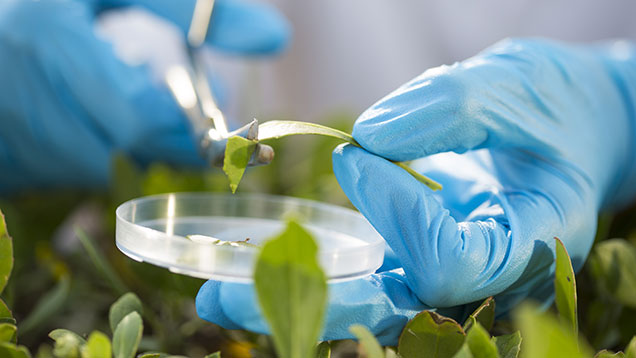Report forecasts high-tech bonanza for arable farmers
 © Rex Shutterstock
© Rex Shutterstock Rapid advances in autonomous robots and precision technology and new genetic engineering techniques to extend crop protection are among the key trends that will reshape arable farming over the next 15 years, according to a major US consultancy.
Boston Consulting Group (BCG) analysed all agricultural patents registered between 2010 and 2014 and interviewed a panel of European farmers and industry experts to help put together its report, Crop Farming 2030, published last week.
See also: How precision farming is changing UK agriculture
Most farmers interviewed believed that precision farming techniques would be widely adopted by 2030, with farm machinery equipped with sensors and connected wirelessly transformed into “smart” kit that can be controlled centrally.
This was supported by the analysis of patent registrations, which found a large number related to precision farming, particularly autonomous vehicles and precision harvesters and mowers.
BCG expects dramatic improvements in the performance of remote-controlled and autonomous equipment to drive on-farm improvements including:
- Instantaneous control of variable-rate seeding, fertilising and other equipment based on real-time data from sensors measuring soil conditions and other environmental factors
- Smart tillage, enabling farmers to automatically till at different depths depending on local soil conditions
- Enhanced accuracy achieved by combining data from multiple sources such as real-time nitrogen sensors, GPS-connected maps and images from drones
European farmers, with typically smaller holdings than their US counterparts, are expected to adopt smart ways of collaborating to exploit technologies that typically deliver the best return across large areas.
The report cites the example of German farmers who are already “virtually consolidating” their plots by working across field boundaries using GPS-guided smart equipment and a data-driven approach, which allows them to allocate yields to each individual farmer.
New genetic engineering capabilities, such as faster gene editing tools and RNA inhibition, which makes it possible to selectively control the impact of individual genes, are expected to deliver crop varieties that can kill fungi, nematodes and even viruses.
The report expects these improvements to deliver plants that are resistant to diseases such as wheat rust, potato blight and mosaic viruses.
BCG suggests that some of these new techniques could help to overcome European resistance to the use of GM crops, because they can deliver new varieties that are indistinguishable from those produced through natural breeding.
However, BCG expects what it calls the “back-to-the-roots” trend in Europe, epitomised by increasing restrictions on the use of chemicals and continuing resistance to the use of GM crops, to continue up to 2030, with further regulation and more restrictions on the use of yield-enhancing techniques adopted elsewhere.
As a result, it expects to see growing demand for products and innovations that increase the efficiency of organic farming – for example, autonomous weeding robots which can increase yields without the need for herbicides.



